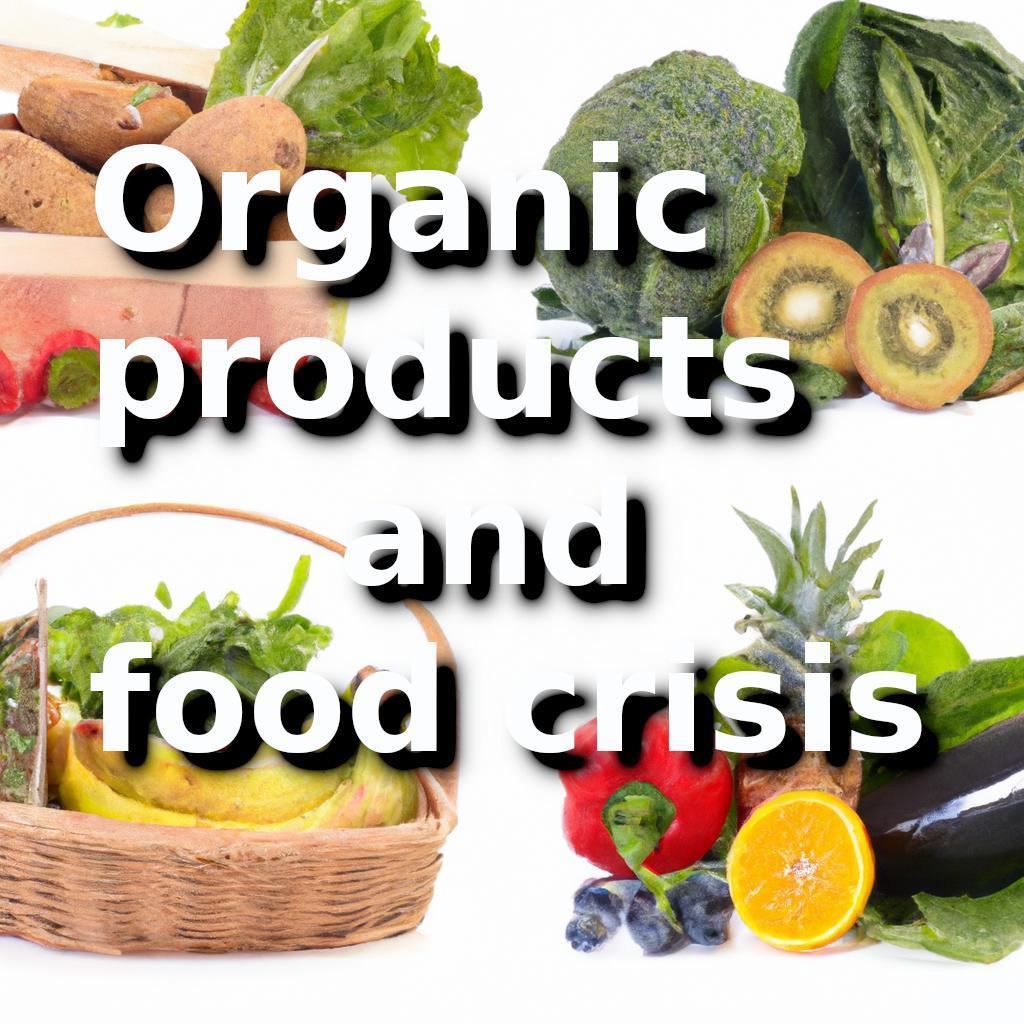


In the intricate web of modern agriculture and culinary practices, the history of organic products unfolds as a tale of returning to nature's roots, seeking sustainability, and confronting the looming specter of a food crisis.
Seeds of the Organic Movement:
The organic movement's roots stretch back to the early 20th century, with visionaries like Sir Albert Howard and Lady Eve Balfour advocating for sustainable farming practices. Their principles laid the foundation for the modern organic movement, emphasizing soil health, biodiversity, and the rejection of synthetic chemicals.
Post-World War II Pesticide Boom:
The post-World War II era witnessed a surge in the use of synthetic pesticides and fertilizers in agriculture. While these innovations promised higher yields, they also sparked concerns about the environmental impact and long-term effects on human health.
Silent Spring and Environmental Awakening:
Rachel Carson's groundbreaking book "Silent Spring" in the early 1960s sounded an alarm about the environmental consequences of widespread pesticide use. This seminal work became a catalyst for increased awareness of ecological balance and the need for more sustainable farming practices.
The Birth of the Organic Label:
The 1970s saw the birth of the organic certification movement, with organizations like the Rodale Institute paving the way. The USDA Organic label, introduced in 2002, provided consumers with a standardized way to identify products meeting organic standards, fostering trust in the burgeoning organic industry.
Organic Boom and Challenges:
As awareness grew, so did the demand for organic products. Supermarkets embraced organic aisles, and farmers' markets flourished. However, challenges arose, including debates over organic certification criteria, the scale of industrial organic farming, and the ecological footprint of transporting organic products globally.
Food Crisis and the Role of Organics:
In the face of a global food crisis marked by population growth, climate change, and soil degradation, the principles of organic farming have gained renewed significance. Organic agriculture, with its emphasis on sustainable practices, biodiversity, and soil health, presents a potential solution to mitigate the environmental impact of conventional farming.
The Future of Organics:
As we navigate the complexities of the 21st-century food landscape, the organic movement stands at a crossroads. Balancing the increasing demand for organic products with the movement's foundational principles will shape the future of organics. Innovations in agroecology, regenerative farming, and localized food systems are key factors in steering the organic movement toward a sustainable and resilient future.
Organic products refer to agricultural products, such as fruits, vegetables, grains, and livestock, that have been grown and processed using environmentally friendly and sustainable methods. The use of synthetic fertilizers, pesticides, and genetically modified organisms (GMOs) is prohibited in organic farming.
Organic products are often perceived as healthier and safer than conventionally produced products, as they are free from potentially harmful chemicals and additives. They are also believed to be better for the environment, as organic farming practices focus on soil health, water conservation, and biodiversity.
To agricultural products, there are also organic food products that are processed, such as organic meat, dairy, and baked goods. These products are made with organic ingredients and are often minimally processed, without the use of artificial colors, flavors, or preservatives.
According to the latest available data from the Research Institute of Organic Agriculture (FiBL), in 2019, there were 72.3 million hectares of organic agricultural land worldwide. This represents a 1.6% increase compared to the previous year.
The countries with the largest organic agricultural areas were Australia, Argentina, and Spain, with 35.7 million hectares, 3.6 million hectares, and 2.4 million hectares, respectively.
In terms of the total number of organic producers, India had the highest number with 1.5 million, followed by Uganda with 210,000 and Mexico with 210,000.
The global organic food and beverage market size was valued at $129.97 billion in 2019 and is expected to reach $679.97 billion by 2027, with a CAGR of 22.4% during the forecast period. This growth is attributed to increasing consumer awareness about the health benefits of organic products, the growth of the organic food industry, and the rise of e-commerce platforms.
Russia has a growing organic agriculture industry and is well-positioned to become a major player in the global organic market. The country has a vast territory with over 200 million hectares of agricultural land, a significant portion of which has never been treated with synthetic pesticides or fertilizers, making it ideal for organic farming.
In recent years, the Russian government has also taken steps to support and promote organic farming. For example, in 2018, the government launched a program to encourage farmers to switch to organic farming practices by providing them with financial incentives and technical assistance.
As a result of these efforts, the organic agriculture sector in Russia has been growing rapidly. According to the Research Institute of Organic Agriculture (FiBL), the area of organic farmland in Russia increased by 24% in 2020, and the country now ranks fourth in the world for the total area of organic farmland.
Furthermore, Russian organic products are known for their high quality and purity. Russian organic farmers use traditional methods of agriculture that are respectful of the environment, and their products are often free from genetically modified organisms, pesticides, and other harmful chemicals.
Russia is well positioned to become a major player in the global organic market due to its vast territory, growing organic agriculture industry, and government support for organic farming. Russian organic products are known for their high quality, purity, and environmentally friendly production methods.
While organic products are becoming more popular around the world, there are still some countries where the availability of organic products is relatively limited.
Some of the countries with fewer organic products are:
China: Despite being a major producer of organic products, the domestic market for organic products in China is relatively small due to a lack of awareness and trust in the certification system.
Russia: While Russia is rapidly expanding its organic agriculture sector, the availability of organic products in the country is still limited compared to other countries due to the relatively low consumer demand.
United States: The United States is a major producer of organic products, but the availability of organic products can vary greatly depending on the region and store. Organic products tend to be more widely available in larger cities and specialty stores.
Africa: Organic farming is still a relatively new concept in many African countries, and there is limited infrastructure and technical support for organic agriculture.
Southeast Asia: Organic products are still a niche market in many Southeast Asian countries, with relatively low consumer demand and limited availability in many areas.
It's important to note that the availability of organic products can vary greatly depending on the region within a country and that the organic market is constantly evolving and expanding globally.
The food crisis is a term used to describe situations where there is a shortage of food, resulting in hunger and malnutrition for millions of people. This can happen due to a variety of factors, such as extreme weather events, conflict, economic instability, and lack of access to resources and infrastructure.
One of the challenges in addressing the food crisis is the issue of food farming. Traditional farming methods, such as intensive monoculture, have been linked to environmental degradation, soil erosion, and depletion of natural resources. Additionally, these methods often rely heavily on synthetic fertilizers and pesticides, which can have harmful effects on human health and the environment.
In response, there has been a growing movement towards sustainable and regenerative agriculture practices, such as organic farming, agroforestry, and permaculture. These methods prioritize soil health, biodiversity, and ecological balance, and can be more resilient to extreme weather events and other challenges.
In addition to farming methods, there are also challenges in the food supply chain, such as food waste and unequal distribution of resources. According to the United Nations, about one-third of all food produced in the world is lost or wasted, while millions of people go hungry. Addressing these issues requires coordinated efforts from governments, businesses, and individuals to reduce waste, increase efficiency, and ensure equitable access to resources and infrastructure.
Addressing the food crisis requires a holistic approach that considers the social, economic, and environmental factors that contribute to food insecurity. This includes promoting sustainable farming practices, reducing food waste, and addressing inequalities in access to resources and infrastructure.
Not only does organic product cultivation promote a healthier lifestyle, but it also supports a more sustainable environment. By using natural methods to grow your crops, you reduce your carbon footprint and contribute to a cleaner and more eco-friendly world.
In the grand narrative of food production and consumption, the history of organic products serves as a compass, pointing towards a more harmonious relationship between humanity and the Earth. As we confront the challenges of a looming food crisis, the organic movement continues to inspire a return to mindful and sustainable agricultural practices.
Sincerely yours,

We use cookies
We use cookies and other tracking technologies to improve your browsing experience on our website, to show you personalized content and targeted ads, to analyze our website traffic, and to understand where our visitors are coming from. Privacy Policy.